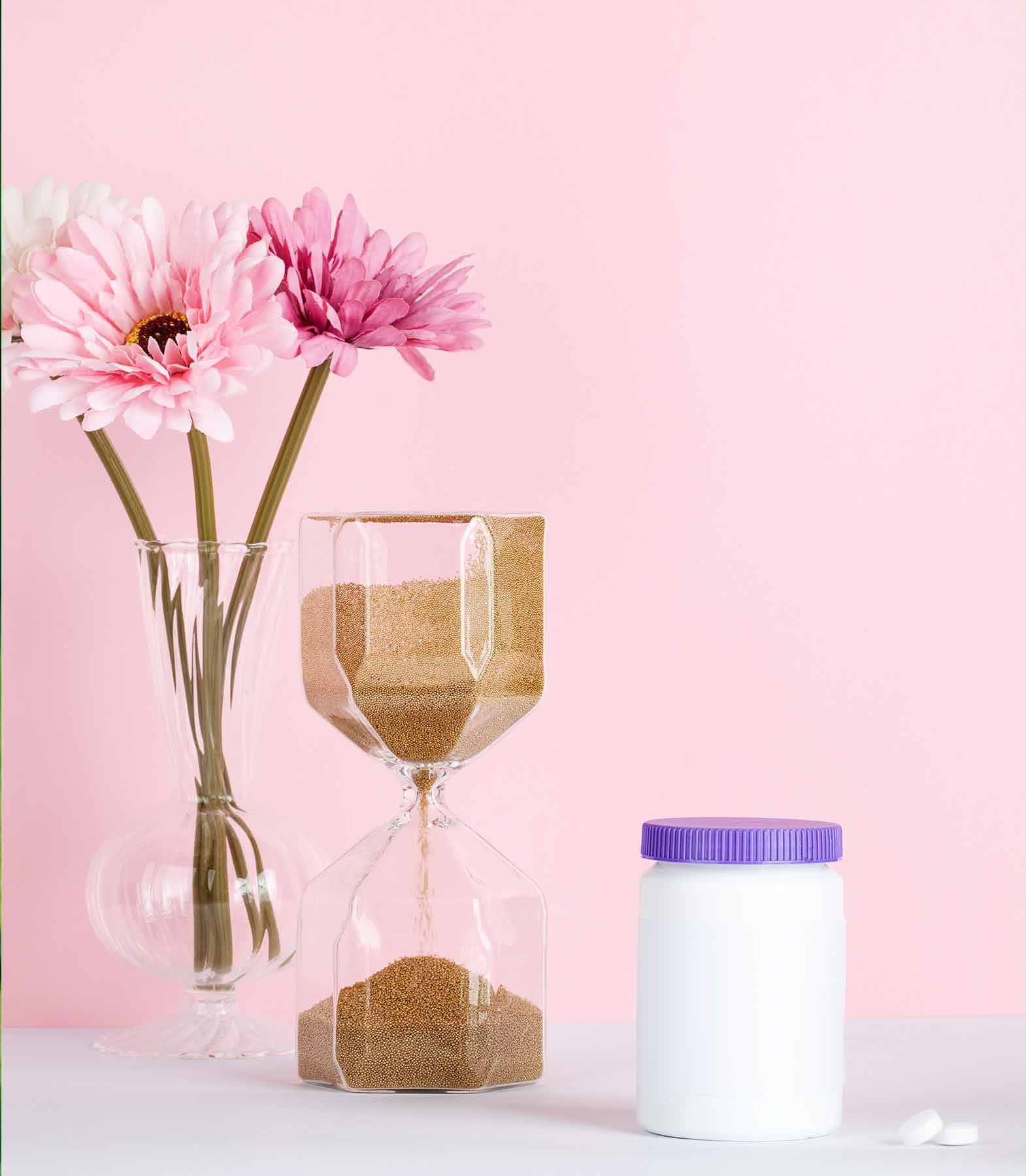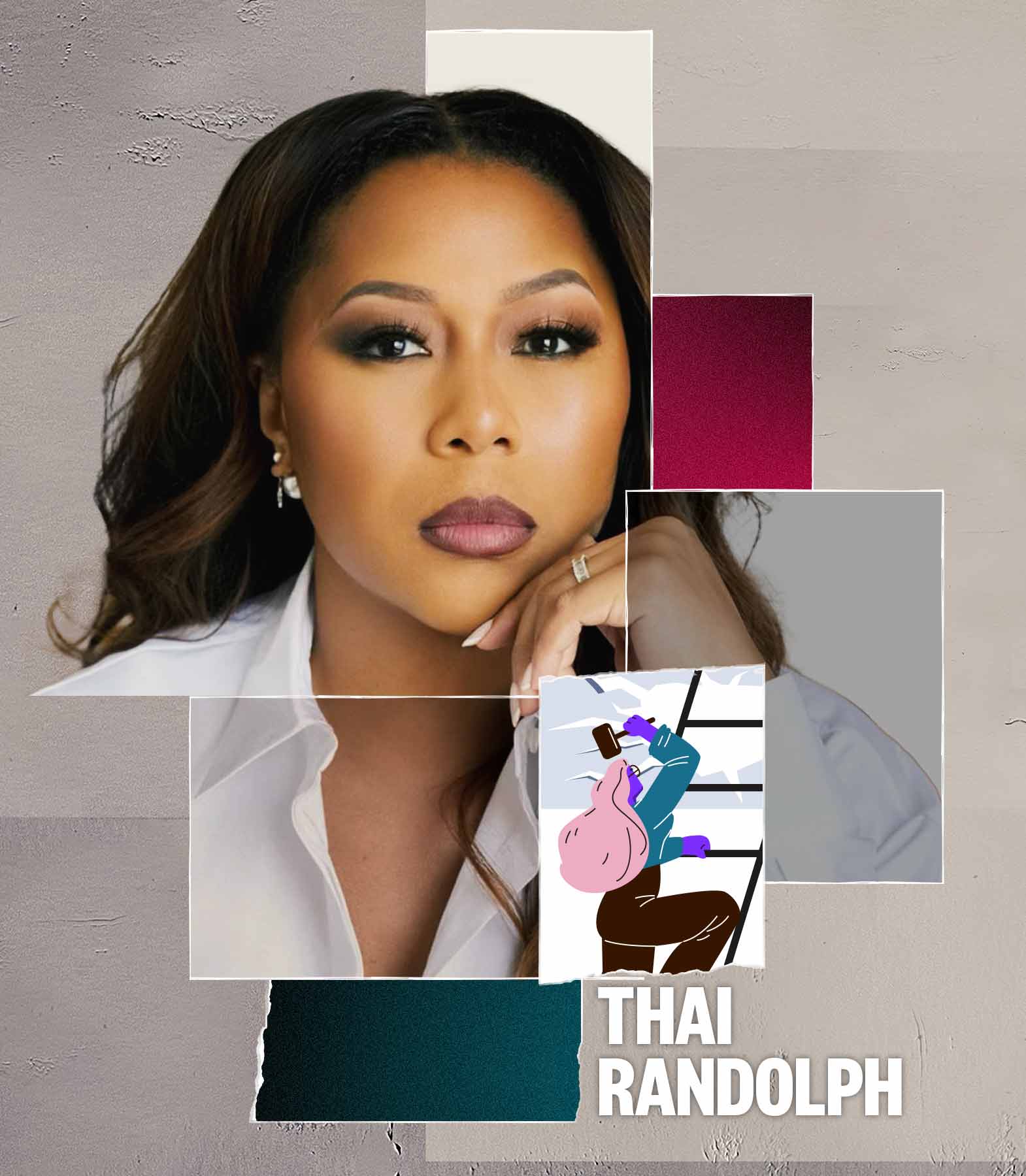Talking Menopause, Midlife, and Not Giving a Damn — Here’s Why MAKERS Are All In
July 31, 2025 · 6 min read
“Menopause? But why write a book about that? You’re too young to think about it,” a (male) doctor responds to my sharing my latest project. I feel a slight sting but then remind myself to not care about this one person’s condescending attitude, that the more appropriate response would have been “Congratulations! How exciting and much-needed,” and that if he were better informed, he’d know that many women experience premature or early menopause, even more experience some symptoms by their early 40s, and the latest guidelines encourage healthcare providers to discuss the menopause transition with women beginning at 35 (I’m 40).
“OMG, I don’t even want to think about getting older,” a millennial girlfriend replies to my text asking what she’d want to know about midlife health so I can ensure my book answers all her (and others’) questions. “Menopause is so cringey.” She’s someone who gave me a birthday card reading “Forty and no more f*cks to give!” so I decided to take that advice. Yes, it can be slightly awkward to discuss menstrual bleeding patterns, low libido, mental health vulnerabilities, feelings of rage at anyone and everyone – but I know that it’s more than slightly important to do so. In fact, I believe it’s imperative, so that women know what to expect and how to navigate symptoms, and so they feel less overwhelmed.
The Choice to Not Care
I choose to not care about anyone’s discomfort or doubt when it comes to spreading awareness about women’s health, when it comes to women learning what they need to know to feel like the best versions of themselves, when it comes to supporting women.
I’ve been here before. In college, I participated in ‘The Vagina Monologues’ promotion for which involved me shouting “Vaginas are here!” on a crowded campus pathway. My skit was about periods and when I first got cast I felt a bit embarrassed and unsure as to whether I could bravely pull it off. But then I thought more about how cool it was to be on a stage in front of hundreds, talking about a very normal and universal experience. (Nearly 20 years later, I’m still doing just that.) I told myself to not care about feeling uncomfortable and to instead feel empowered. It worked. My guy friends bought and even helped sell tickets for the show, cheering me and my cast mates on as we talked about puberty, sexuality, and femininity, raising thousands of dollars for the only rape crisis center in Philadelphia. Not caring about other people’s misinformed opinions (perhaps projected and not even real) was invigorating.
I’m reminded of this outlook consistently by the older women I interview for my book Millennial Menopause. “I have a much lower tolerance for BS, and it feels great,” they reflect on this phase. “I know what my priorities are, and anyone can have their opinion, but I really don’t care what people think of me.”
Women Join the "We Do Not Care Club" in Droves
They’re not alone. Influencer Melani Sanders recently founded the “We Do Not Care Club,” a social media phenomenon through which women in peri/menopause share ways they have stopped trying to please everyone, something women are conditioned to do starting in childhood. Thousands of women have shared that they do not care about what people think of them when they don’t put on make-up, or avoid family functions they do not want to attend, or (gasp!) look like their actual age. And they feel better for it.
Millennial girlies, it’s (past) time to join this club. I know it’s not easy. I care a lot, to be honest – my feelings are so deep and my awareness of others’ so high that I turned my emotional intelligence and compassion into a career as a psychotherapist. Through my work I help other women so that they don’t let the impact of others’ opinions consume them. I help them remember that it doesn’t serve them to feel bad about the views of someone they do not even respect. I help them reframe their negative self-talk into a more generous interpretation of others’ actions. I help them care a little less about being judged and a lot more about real self-care.
And of course, this is an approach I myself practice. I do not care that most mornings I walk my kids to school still in my pajamas with my hair unbrushed, because I know we are all just trying our best. I do not care that some may critique my business branding’s pink for being cheesy, because it brings me joy and feels authentic and fun. I definitely do not care that that some people are initially uneasy talking about menopause or women’s reproductive health, because I view their reaction as an opportunity to teach, to learn, and to do better, together.
This Movement is an Opportunity
And that’s what I think the “We Do Not Care Club” movement is – an opportunity. Its sentiment isn’t selfish but rather a chance to consider one’s genuine values. Not caring about being judged offers a opportunity to consider what matters to you, which boundaries you would not regret setting, who in your life lifts you up or makes you laugh. Not caring about what other people think of you is liberating and emboldening – much like, as we are learning, middle age and menopause can be, especially if we embrace this period of life as a privilege.
I do care about women’s longevity, agency, and ability to optimize their health with science-backed choices and the autonomy to treat their symptoms in whatever ways work best for them. I do care about women feeling equipped with knowledge, community, and resources as they enter into their life’s next chapter. I do care about normalizing conversations about topics that have been stigmatized and undervalued, and about making women feel less alone or ashamed about natural life stages or, actually, any struggles.
I may not care what others think but I really do care – about all women, and about you.
——
Lauren A. Tetenbaum, LCSW, JD, PMH-C is a licensed clinical social worker, women’s rights advocate, and writer dedicated to supporting and empowering women through life transitions. With experience as a lawyer, psychotherapist, and mom of two, Lauren specializes in counseling women navigating identity shifts related to motherhood, career, and reproductive health. She frequently contributes thought leadership to digital and print media and professional organizations. Lauren is the author of the 2025 book “Millennial Menopause: Preparing for Perimenopause, Menopause, and Life’s Next Period.” Learn more about Lauren at thecounseLaur.com.





